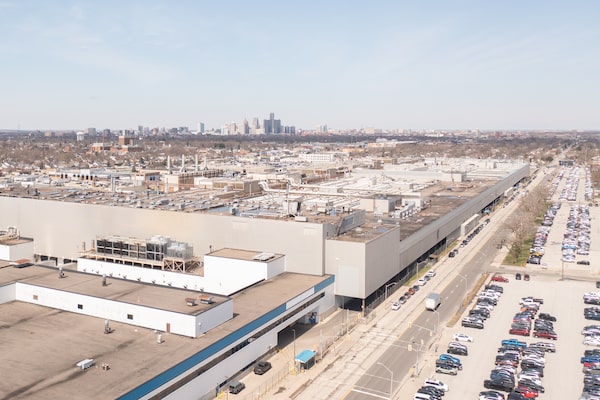Stellantis NV has announced that it will postpone production of the 2026 electric Dodge Charger R/T at its Windsor, Ontario assembly plant due to U.S. tariffs imposed on Canadian-made vehicles. The company stated that this decision will not affect jobs at the plant, which employs 3,800 hourly workers and also manufactures minivans. The Windsor assembly plant began producing the electric muscle car last year, with the Charger R/T being the base model.
“Production of the Dodge Charger Daytona R/T is postponed for the 2026 model year as we continue to assess the effects of U.S. tariff policies,” Stellantis said in a statement. Unifor national president Lana Payne confirmed that the delay will not result in job losses, partly due to the upcoming launch of the four-door Charger in late 2025. However, she expressed concern about ongoing economic uncertainty and job instability in the auto sector for both Canadian and American workers due to the Trump Administration’s policies.
Impact on Windsor Assembly Plant
The Windsor assembly plant was temporarily closed for two weeks in April following the implementation of 25% tariffs. The plant is expected to experience rolling production cuts and layoffs through July. Additionally, Stellantis has postponed adding a third production shift until next year. This decision comes amid slowing growth in electric vehicle (EV) sales, partly attributed to the tariffs and the elimination of government purchasing incentives in Canada and the United States.
Other automakers have also been affected by the tariffs and changing EV sales landscape. Honda Canada recently delayed its $15-billion electric vehicle project in Ontario due to weaker sales outlooks. Ford Motor Co. has shelved plans to produce EVs in Oakville, Ont., and instead plans to manufacture pickup trucks when the plant reopens.
Government Response
Mélanie Joly, Minister of Innovation, Science and Industry, said she has been in discussions with Stellantis North America’s CEO, Jeff Hines, and received assurances that Canadian jobs will be maintained. “There is a softening of the demand on the electric vehicle side,” she noted at a Toronto news conference, adding that the auto sector is under significant pressure due to the tariffs. Ottawa is working to reinstate government support for EV purchases, which expired earlier this year.
Stellantis and LG Energy Solution are planning a $5-billion car battery plant in Windsor, expected to create 2,500 jobs. Ms. Joly stated that she has been told the project is on track but plans to follow up with LG. Dominic LeBlanc, Minister for U.S.-Canada trade, is currently in Washington working to find a way to lift the tariffs. “We are in negotiations with the Americans right now,” Ms. Joly said.



